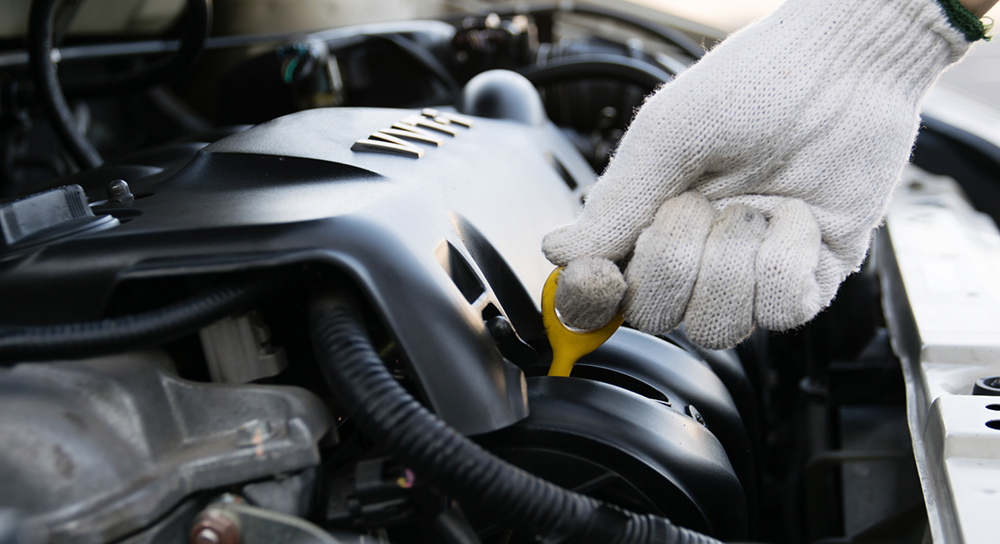What happens if I don’t change my oil?
What happens if I don’t change my oil?
The bad news…
Life gets busy — that’s a given! Demands get in the way and you decide to skip that oil change once — then twice, and then come to realize you are long overdue. It is vital to understand that an ounce of prevention — or five to six quarts of motor oil — is worth its weight in gold!
A car’s oil change is one of the most basic areas of maintenance, and the lack of checking that off your to-do list and NOT getting it done results in greater problems down the road. Oil in the engine is vital, and regular changes are something that simply should not be skipped. Much happens to your vehicle when oil isn’t changed. And the news isn’t good!
Oil’s function
The ability of your car to run smoothly is thanks in great part to your oil as the heart of your vehicle is your engine. In fact, its primary function is to minimize the friction and the wear and tear of the moving parts of your vehicle. The purpose of motor oil is quite important. It is to lubricate, clean, PROTECT, cool and at times, restore engine performance. How often you change your oil depends on many factors, but what happens when you don’t change it comes clear over time. Oil is the lifeblood of your engine. Here is what happens when that is ignored.
The build-up
Dirt and debris, which are picked up as oil moves through the engine and into the oil filter, will eventually clog the oil filter if it isn’t changed. Even worse, the dirt and debris will bypass the filter through a relief valve, cycling the dirty oil back through the engine. Over time, the oil gets too dirty to be effective which is the one of the main reasons it needs changed. In fact, if the oil is not changed, over time the entire engine will shut down and need replaced — a costly investment you surely want to avoid. This can cost thousands of dollars. Compare that to the fact that an oil change is one of your vehicle’s least expensive maintenance items! It’s a no-brainer!
The wear down
Engine parts start to wear down the longer you wait to change the oil. That is because dirty oil is thick and abrasive, so as it cycles through the engine, it picks up more and more dirt. It wears down the engine parts even while keeping them adequately lubricated. The longer an oil change is put off, the engine in general will start to show problems. Most commonly, your engine will simply become too hot, which can cause it to run less efficiently. If the heat doesn’t cause a gasket to blow, it will warp the parts of your engine. This will happen even when your engine has plenty of oil. In fact, as it gets dirtier and dirtier, it will stop lubricating the engine and result in failure quicker than you might like! Go long enough without an oil change, and it could eventually cost you your car.
The loss of effectiveness
Motor oil additives, which is what the oil is made up of — similar to detergents, dispersants, rust fighters and friction reducers — wear out over time when the oil has not been changed. The result is a severe drop in the oil’s lubricating ability, which is already in danger due to the accumulated dirt and debris. Eventually, it will just get dirtier and dirtier. This won’t happen after one month, but instead over time and many thousands of miles. But quick enough, especially as time flies and life gets busier and busier.
The path to sludge
The result of oil cycling through the engine enough times, while the volume of dirt builds up, is the presence of a thick, dark sludgy substance with little to no lubricating qualities. In some of the worst cases, this sludge can become so densely caked that the engine parts literally have to fight through it in order to move. Sludge deposits are a sure indicator of the lack of proper maintenance, something that can be easily remedied with a regular oil change!
The complete engine failure
The failure of your engine happens over time, but it will in fact happen when oil is left ignored over a long period of time. With nothing left to keep the engine’s moving parts from coming into contact, the friction of metal against metal causes such severe damage to the components that the engine will ultimately seize up and just stop working! This shows the importance of oil in that it is a lubricant that lets metal press against metal without damage. But, the most important point to note in this scenario is that, at this point, it does not represent a fixable problem as seized engines are beyond repair. They must be replaced, and at a steep price tag. In this case, many decide to just sell their car to a scrap yard.
The good news
While the news doesn't look good when it comes to what happens when oil does not get changed, the upside is simple. It is not costly to have an oil change, and in today’s world, can be completed in less than 30 minutes, leaving you plenty of time to get back to life, errands, work and fun!
In general, it is recommended that oil is changed either when your car has covered the certain mileage time limit, or when you have traveled around 3,000 miles or six months, whichever comes first.
The traditional recommendation has met a new standard in recent years, calling for an oil change every 5,000 miles worry-free, especially if you are driving a relatively new car or are in optimal operating conditions.
Whether you visit an independent local service center or your vehicle dealership, an oil change is simple, on the cheaper side, and can help ensure your car stays safe on the road for as long as possible. Oil cleans your engine. It’s as simple as that! Get yours changed today!


